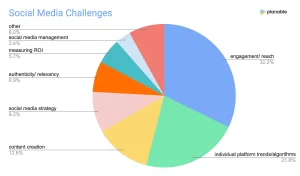Introduction to Social Media Analytics
In the digital age, social Broadcasting platforms are not just communication tools but powerful marketing instruments. Social media analytics (SMA) plays a crucial role in understanding and optimizing these platforms to foster audience engagement and drive marketing success. Through meticulous tracking and analysis, SMA provides insights into user behavior, preferences, and interactions.

Defining Social Broadcasting Analytics
Social Broadcasting analytics involves collecting and evaluating data from social media platforms to make informed decisions. It helps marketers understand the effectiveness of their content and strategies, providing a foundation for enhancing engagement and increasing reach.
Metrics and Their Significance
- Followers and Likes: The basic metric on any social platform is the count of followers or likes, which represents the size of an audience directly interacting with the brand’s content. This number acts as a primary gauge of brand popularity and initial consumer reach.
- Engagement: More critical than mere followers or likes is the engagement rate, which includes likes, comments, shares, and other interactions divided by the total impressions or reach. A higher engagement rate indicates that the content is not only reaching the audience but also resonating with them, prompting interaction. An engagement rate above 1% is generally considered effective.
- Impressions and Reach: These metrics show the total number of times content is displayed (impressions) and the number of unique viewers that content reaches. Tracking these helps marketers understand the breadth of their content’s visibility.
Tools and Techniques for Social Broadcasting Analytics
Utilizing tools like Facebook Insights or Twitter Analytics can provide a comprehensive view of how content performs. These tools offer detailed reports on engagement, audience demographics, peak activity times, and more, enabling marketers to tailor their strategies more effectively.
Enhancing Content Strategy with Analytics
Data from social Broadcasting analytics allows marketers to refine their content strategy dynamically. By understanding what type of content generates more engagement or reaches a broader audience, marketers can focus their efforts on creating more of what works, thereby increasing the effectiveness of their social campaigns.
Case Studies and Real-world Applications
Illustrating the power of effective social Broadcasting analytics, case studies often reveal how brands have turned around their digital presence by leveraging data insights. For instance, a brand might discover through analytics that video content generates ten times the engagement of other post types, prompting a strategic shift to produce more video content.
Challenges in Social Broadcasting Analytics

Despite its benefits, social media analytics comes with challenges such as data overload, the need for real-time analysis, and the constant evolution of social media algorithms. Marketers must stay updated with the latest tools and trends, ensuring their analytical approaches remain effective.

